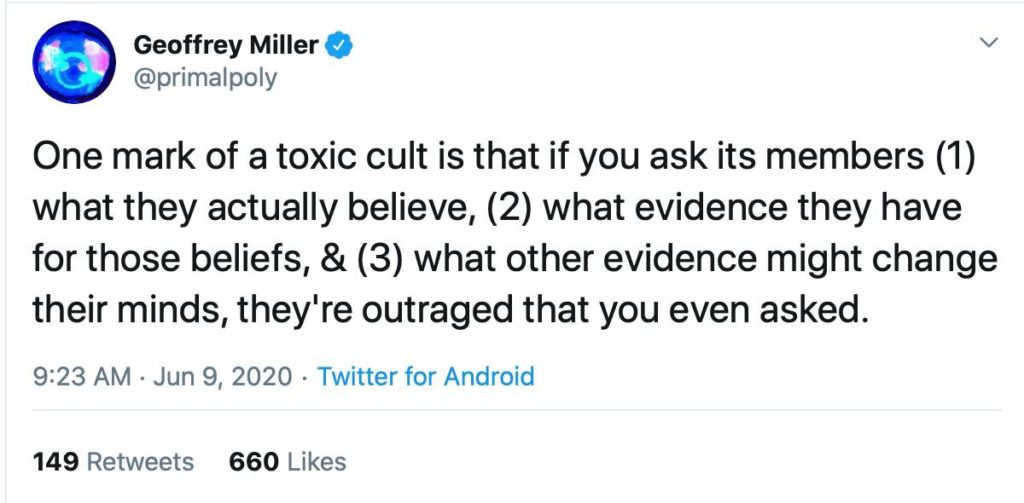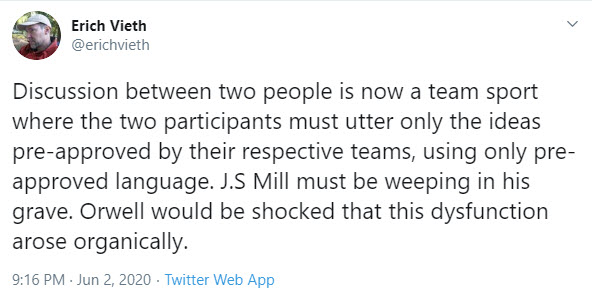Face2Facebook: A Proposed App for Decreasing Contentious Conversations on Facebook
I enjoy spending time with many of the people on Facebook. I’ve also had to endure more than a few rude exchanges with other Facebook users. On several occasions over the past two years, I’ve reached out to a FB user from my city who seemed rude. I sent a private FB message and I wrote something like this: “Hey, I’d bet that we have a lot in common. Would you be interested in having a face to face conversation, perhaps over coffee?” Several people accepted my invitations and every one of these conversations was cordial and productive. Several of these relationships are ongoing. We don’t agree on everything, but these in-person conversations are well worth it. I get the gift of learning how to see the world through the eyes of another person and that’s always a good thing. Also, we inevitably find out that we have many things in common, just as Donald Brown established in his classic 1991 work: “Human Universals.”
 Over the past couple of years, it seems that FB has become an even more contentious place. It is increasingly expected that people will preach at each without a willingness to be changed by new information. When I offer information or ask a question on FB, I often receive huffy pushbacks, accusations, ridicule and name-calling instead of open-minded fact-finding and a willingness to start the conversation by finding each other where we are. The bad behavior we see is clearly not how adults should be interacting, but I don’t place all of the blame on the FB users. The format of social media dehumanizes us to each other, making it easy to lash out at mere words on a page, distracting us from the reality that real human beings seeking connections are writing those words. This is more than a frustration. This non-stop boorish behavior is convincing us that it is impossible to have conversations with those who see the world differently than we see it.
Over the past couple of years, it seems that FB has become an even more contentious place. It is increasingly expected that people will preach at each without a willingness to be changed by new information. When I offer information or ask a question on FB, I often receive huffy pushbacks, accusations, ridicule and name-calling instead of open-minded fact-finding and a willingness to start the conversation by finding each other where we are. The bad behavior we see is clearly not how adults should be interacting, but I don’t place all of the blame on the FB users. The format of social media dehumanizes us to each other, making it easy to lash out at mere words on a page, distracting us from the reality that real human beings seeking connections are writing those words. This is more than a frustration. This non-stop boorish behavior is convincing us that it is impossible to have conversations with those who see the world differently than we see it.
With this in mind, I’d like to offer FB this free idea: Face2Facebook. Here’s how it would work. If you believe that someone is being rude to you on FB, click the Face2Facebook button and it will bring up a scheduling app for both you and “the rude person.” The app asks both of you to designate various times when you would be available to have a ten-minute video conversation through FB. When that date and time arrives, the app will encourage you to start by getting to know each other as people by discussing a bit about each other’s family, community and interests. Only then should you ask each other about the topic that gave rise to the contentiousness. If you are both brave, you’ll listen to each other with open minds, putting each other’s best foot forward. A timer will ding after ten minutes, at which point you can (but need not) say farewell to each other. The best outcome is that each of you will be reminded that you were communicating with another human being. You will be reminded that there was a person behind those words. Perhaps the app will ask you to rate each other on whether you were good listeners. After you complete the ten-minute video conversation, Face2Facebook will publish a public acknowledgement that the two of you reached out to each other and had a conversation.
Not that every conversation will be easy or fun, but isn’t this worth a try? Maybe that conversation will change how you think about a topic. Then again, that video might only reveal that that “53-year old engineer” was a 14-year old boy whose highest aspiration is piss others off. If the other person refuses to talk to you on a video, perhaps this could be indicated on their profile so that the FB community would see statistics regarding who requests conversations and who cowardly refuses to meet on Face-to-Facebook.
This is only a rough draft idea, not a polished app. I don’t know if this is really workable. I do hope that FB might consider something like this because we desperately need something to get us out of our social media downward spiral.


